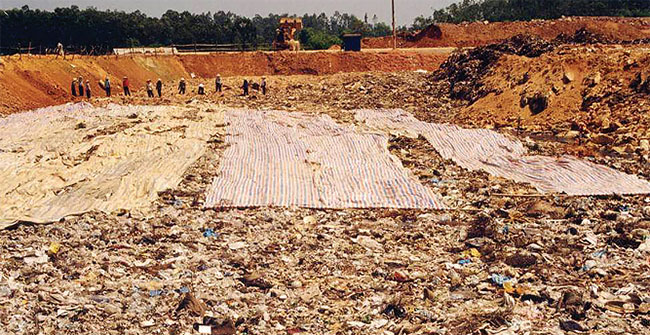Japan holds fire on waste to energy investments

Many Japanese investors are interested in solid waste treatment projects in Vietnam
Taiyo Miyagi, manager of Hitachi Zosen Corporation’s Global Business Promotion Department, said that his firm was implementing one waste-to-energy project in Hanoi, with the total investment capital of $29.2 million, and has plans to build other two projects of this kind in Ho Chi Minh City. The city-based first plant will cost $70 million, with the second cost at $8 million.
Waste-to-energy plants are designed to produce power from the large amounts of energy generated during hygienic waste incineration and treatment processes.
“The first will have the daily capacity of 600 tonnes of solid waste per day. We want to raise the capacity to 1,000 and then 2,000 tonnes per day to support the city in treating waste with modern technology and supplement a stable power supply to the city,” Miyagi said.
“However, currently, we’ll focus on the project’s first phase, and our additional investment will depend on incentives and investment conditions to be created by the Vietnamese government,” he said.
“Many Japanese investors like us are interested in solid waste treatment projects in Vietnam. However, Vietnam still lacks favourable investment conditions for foreign investors in this industry. At present, these investors are waiting for Vietnam to enact public-private partnership regulations, before deciding on next-step investments,” he explained.
Hideki Wada, team leader of the Vietnam Waste Project supported by the Japan International Co-operation Agency, also said that many Japanese investors like Hitachi Zosen and JFE were interested in implementing waste-to-energy projects in Vietnam.
“However, the biggest challenge for many Japanese investors to building such plants in Vietnam is the very high investment cost, which is more than double that of other regional nations,” he said.
According to Wada, Japanese investors wanted to implement such projects via public-private partnership models.
Since June 2014, the incentive feed-in-tariff in Vietnam for renewable power generated from solid waste treatment-to-power plant was set at 10.05 UScents per kWh. This is higher than the tariff of 7.8 UScents fixed for wind power plants.
What the stars mean:
★ Poor ★ ★ Promising ★★★ Good ★★★★ Very good ★★★★★ Exceptional
Latest News
More News
- Cement industry pleads for energy efficient tech (December 08, 2015 | 11:00)
- Going green to save a bundle (June 08, 2015 | 10:00)
- Green buildings: the rising trend (June 02, 2015 | 09:41)
- Green buildings – key to sustainable urban development in Vietnam (May 18, 2015 | 17:00)
- Feed-in tariffs continue to haunt green energy prospects (December 15, 2014 | 10:47)
- Building material types intrinsic to green ratings (December 09, 2014 | 11:56)
- Turning an eco- smart dream into reality (December 09, 2014 | 11:55)
- Green products enjoy a growing presence at Vietbuild Hanoi 2014 (December 01, 2014 | 10:06)
- Country profits from green building (November 24, 2014 | 11:02)
- Firms flout enviroment laws (November 17, 2014 | 10:48)















 Mobile Version
Mobile Version